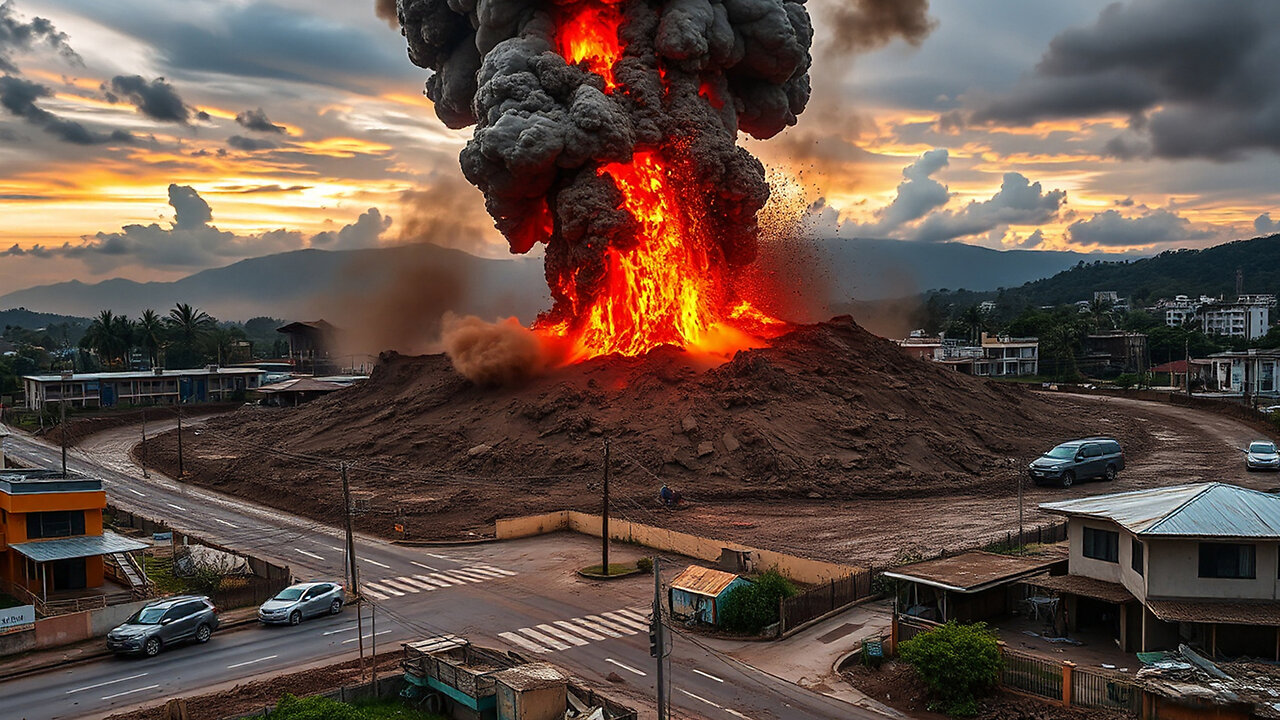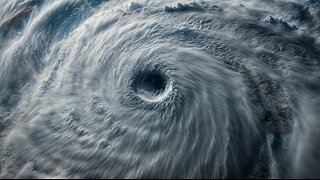Premium Only Content

Colombia NOW! Dual Disaster: Mud Volcano Eruption and Historic Flooding
On November 11, a major eruption of the Los Aburridos mud volcano occurred in the department of Antioquia, Colombia.
Initially, it spewed mud mixed with ash into the sky. A few minutes later, a loud explosion was heard, and a fireball erupted from the crater.
Eight people, including three children, were poisoned by smoke and gas and lost consciousness. The victims were transported to medical facilities.
109 homes located near the volcano were damaged, and the local road was blocked. Authorities evacuated 16 families, including 30 children, from the affected areas.
Such eruptions are rare for the Los Aburridos volcano. A similar event occurred here 10 years ago, but the consequences were less significant.
The eruption of the mud volcano added to the series of disasters in Colombia.
Heavy rains, which have affected the country in recent weeks, caused chaos and led to a real natural disaster. The government declared a state of emergency across the country due to floods, landslides, and damage.
According to the National Disaster Risk Management Authority (UGRD), floods have affected 27 out of 32 departments in the country, including the most vulnerable regions in the northern and western territories. In total, around 46,000 families, or more than 200,000 people, have been affected.
In Chocó, considered the poorest department in Colombia, floods have impacted 85% of the territory. Overflowing rivers such as Baudó, Atrato, and San Juan destroyed homes, livestock, and agricultural land. Some communities, like the indigenous El Salto community in the municipality of Bojayá, have completely disappeared. More than 4,000 homes were destroyed in the department, 18 schools were damaged, and nearly 3,700 acres of crops were ruined. Over 30,000 families found themselves in a dire situation, having lost their homes and property.
Heavy rains also caused extensive flooding in Colombia's capital, Bogotá, especially in the northwest part of the city, where overflowing sewage systems created serious problems on major highways. The flooding made transportation difficult, causing long traffic jams. There were also disruptions at El Dorado Airport, which led to flight suspensions.
The key epicenters of the disaster also include the departments of La Guajira and Santander. In La Guajira, flooding affected more than 10,000 families, while in Santander, the flooding of the Las Cruces River claimed one life and left two people missing. In Upper Guajira, the most remote and impoverished area, the situation is even more dire — every day, the threat of food shortages grows due to the destruction of roads.
It is clear that the climate situation on Earth is rapidly deteriorating. The catastrophes are causing immense economic damage to countries and, most importantly, taking more and more human lives. We urgently need to direct all of humanity's resources toward addressing the climate crisis before the situation becomes irreversible. You can find more information about this at the "Global Crisis. The Responsibility" forum.
-
 9:26
9:26
AllatRa TV
6 days agoPhilippines NOW! Super Typhoon Ineng Strikes: Mass Evacuations and Coastal Devastation
116 -
 32:10
32:10
MYLUNCHBREAK CHANNEL PAGE
1 day agoThe Gate of All Nations
92.3K41 -
 13:07
13:07
Sideserf Cake Studio
9 hours ago $1.02 earnedIS THIS THE MOST REALISTIC SUSHI CAKE EVER MADE?
26.9K2 -
 21:08
21:08
Clownfish TV
1 day agoElon Musk Tells WotC to BURN IN HELL for Erasing Gary Gygax from DnD!
21.7K8 -
 48:22
48:22
PMG
5 hours ago $3.90 earned"IRS Whistleblowers Speak Out on Biden Family with Mel K In-Studio"
17.9K9 -
 2:59
2:59
BIG NEM
7 hours agoLost in the Wrong Hood: Who Do I Check In With?
14.3K2 -
 1:29:32
1:29:32
I_Came_With_Fire_Podcast
17 hours ago"UFOs, Nukes, & Secrecy: Bob Salas on the 1967 Malmstrom Incident, UAPs, & Disclosure"
129K24 -
 1:57:05
1:57:05
The Quartering
11 hours agoElon Musk To BUY MSNBC & Give Joe Rogan A Spot, MrBeast Responds Finally To Allegations & Much More
121K96 -
 3:01:18
3:01:18
EXPBLESS
12 hours agoFirst Time Playing Extraction Shooters | *LIVE* Arena BreakOut | #RumbleTakeOver
98K9 -
 1:26:18
1:26:18
LumpyPotatoX2
11 hours agoArena Breakout: Infinite - #RumbleGaming
74.2K1